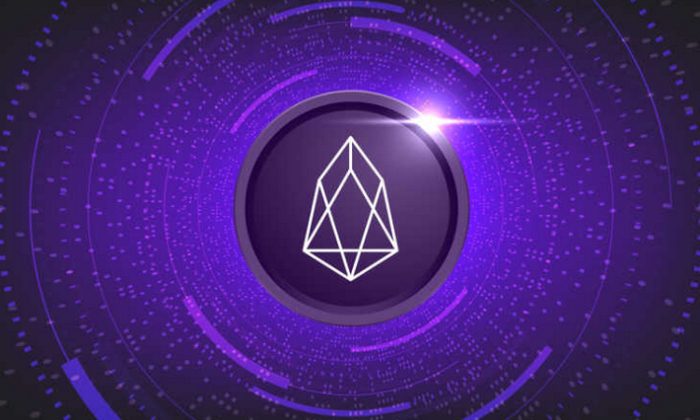-
 Bitcoin
Bitcoin $93,186.7808
5.67% -
 Ethereum
Ethereum $1,790.8332
13.12% -
 Tether USDt
Tether USDt $1.0003
0.02% -
 XRP
XRP $2.2275
6.78% -
 BNB
BNB $615.2576
2.56% -
 Solana
Solana $149.4751
7.43% -
 USDC
USDC $0.9999
-0.01% -
 Dogecoin
Dogecoin $0.1818
12.68% -
 Cardano
Cardano $0.6921
10.63% -
 TRON
TRON $0.2475
0.57% -
 Chainlink
Chainlink $14.3998
9.70% -
 Avalanche
Avalanche $22.4621
12.88% -
 Sui
Sui $2.8002
25.37% -
 UNUS SED LEO
UNUS SED LEO $9.0584
-0.74% -
 Stellar
Stellar $0.2674
7.75% -
 Shiba Inu
Shiba Inu $0.0...01377
10.75% -
 Toncoin
Toncoin $3.1325
7.14% -
 Hedera
Hedera $0.1821
6.81% -
 Bitcoin Cash
Bitcoin Cash $357.0499
3.45% -
 Polkadot
Polkadot $4.0875
8.94% -
 Litecoin
Litecoin $84.5855
7.26% -
 Hyperliquid
Hyperliquid $19.0943
2.65% -
 Bitget Token
Bitget Token $4.6448
4.17% -
 Dai
Dai $0.9998
-0.01% -
 Ethena USDe
Ethena USDe $0.9994
0.02% -
 Pi
Pi $0.6524
3.07% -
 Monero
Monero $225.3741
4.74% -
 Pepe
Pepe $0.0...09153
14.40% -
 Uniswap
Uniswap $5.9461
12.68% -
 Aptos
Aptos $5.2797
8.51%
Where are EOS coins traded? How to buy EOS coins? An inventory of the top five EOS coin exchanges
For seamless EOS trading, consider top exchanges like OKX and Binance, which offer a diverse range of EOS trading pairs, competitive fees, and advanced trading tools.
Oct 29, 2024 at 11:31 pm

Where to Trade EOS Coins: A Comprehensive Guide
EOS is a decentralized blockchain platform designed to support decentralized applications (dApps). Its native cryptocurrency, EOS, is used to pay transaction fees and provide resources to dApps on the network. If you're looking to invest in EOS or utilize it for dApp development, here's a detailed guide on where to trade EOS coins and how to buy them:
Top Five EOS Coin Exchanges:
OKX:
- One of the world's largest cryptocurrency exchanges with a wide range of trading pairs and advanced trading tools.
- Supports EOS trading against various fiat currencies (e.g., USD, EUR) and cryptocurrencies (e.g., BTC, ETH).
Binance:
- Another major cryptocurrency exchange known for its liquidity and trading volume.
- Offers EOS trading against multiple cryptocurrencies and fiat options.
KuCoin:
- A reputable exchange that focuses on altcoins and provides a user-friendly platform.
- Supports a diverse selection of EOS trading pairs and low trading fees.
Gate.io:
- A long-established cryptocurrency exchange with a strong presence in the Asian market.
- Offers EOS trading against a range of cryptocurrencies and fiat options.
Huobi:
- A popular exchange with global reach and a wide range of supported cryptocurrencies.
- Provides EOS trading against various fiat currencies and cryptocurrencies.
How to Buy EOS Coins:
Create an Account on an Exchange:
- Choose an exchange from the list above and create an account. Typically, you'll need to provide personal information and complete KYC (Know Your Customer) verification.
Fund Your Account:
- You can usually fund your exchange account via bank transfer, credit/debit card, or other supported payment methods.
Place an Order:
- Once your account is funded, navigate to the EOS trading page and choose the desired trading pair. Set the amount of EOS you want to buy and execute the order.
Other Options for Trading EOS Coins:
- Brokerage Platforms: Cryptocurrency brokerage platforms like Coinbase and Gemini also offer EOS trading but may have limited liquidity and higher fees compared to exchanges.
- Decentralized Exchanges (DEXs): DEXs like Uniswap and PancakeSwap allow you to trade EOS directly with other users without the need for an intermediary.
Note: It's important to research and compare different exchanges to find one that meets your specific needs and offers the lowest fees. Always follow best practices for cryptocurrency security, such as using a strong password and enabling two-factor authentication.
Disclaimer:info@kdj.com
The information provided is not trading advice. kdj.com does not assume any responsibility for any investments made based on the information provided in this article. Cryptocurrencies are highly volatile and it is highly recommended that you invest with caution after thorough research!
If you believe that the content used on this website infringes your copyright, please contact us immediately (info@kdj.com) and we will delete it promptly.
- Bitcoin Breaks Through $90,00 as Trump Says He Has 'No Intention' of Firing Fed Chair Jerome Powell
- 2025-04-23 12:35:12
- Musk: Not quitting DOGE, just reducing time allocation
- 2025-04-23 12:35:12
- US Securities and Exchange Commission charges man who allegedly created crypto scheme that swindled 90,000 people out of $200M
- 2025-04-23 12:30:12
- Bitcoin Breaks Above $89,000 to Hit Its Highest Price Since Early March
- 2025-04-23 12:30:12
- US President Donald Trump’s media conglomerate, Trump Media and Technology Group, has signed an agreement with crypto exchange Crypto.com
- 2025-04-23 12:25:12
- The DPDP Act - An Overview:
- 2025-04-23 12:25:12
Related knowledge

What is Ethereum’s Slashing mechanism and how to punish malicious behavior?
Feb 20,2025 at 03:08am
Key PointsOverview of slashingDifferent types of slashing in EthereumIncentives and consequences of slashingIdentifying and reporting slashed validatorsOngoing discussions and potential improvementsEthereum's Slashing Mechanism: Punishing Malicious BehaviorEthereum's slashing mechanism is an essential tool for ensuring network security and punishing mal...

What is the verifier node of Ethereum and how to become a verifier?
Feb 19,2025 at 06:00pm
The Verifier Node of Ethereum: A Comprehensive GuideKey Points:What is a Verifier Node?How to Become a Verifier NodeResponsibilities and Rewards of a Verifier NodeMinimum Requirements for Becoming a Verifier NodePotential Difficulties in Running a Verifier Node1. What is a Verifier Node?A Verifier Node is an independent entity on the Ethereum network th...

What is Ethereum’s staking, and how to participate and earn money?
Feb 19,2025 at 04:37pm
Key Points:Understanding Ethereum's Staking MechanismSteps to Participate in StakingBenefits and Rewards of StakingSecurity and Risk ConsiderationsTechnical Requirements and Hardware OptionsPotential Challenges and Troubleshooting TipsFAQs on Ethereum StakingWhat is Ethereum's Staking?Proof-of-Stake (PoS) is a consensus mechanism used in blockchain netw...

What is Ethereum’s DAO (Decentralized Autonomous Organization) and how does it work?
Feb 20,2025 at 03:12am
Key PointsDefinition and Structure of a DAOGovernance and Decision-Making in DAOsBenefits and Use Cases of DAOsChallenges and Limitations of DAOsWhat is Ethereum's DAO (Decentralized Autonomous Organization) and How Does It Work?Definition and Structure of a DAOA Decentralized Autonomous Organization (DAO) is an innovative governance and management fram...

What is Ethereum's multi-signature wallet and how to improve security?
Feb 20,2025 at 02:18pm
Key Points:Understanding the Concept of a Multi-Signature WalletBenefits and Drawbacks of Multisig WalletsRequirements for Setting Up a Multisig WalletStep-by-Step Guide to Generating a Multisig WalletImplementing Strategies for Enhanced Security1. Understanding the Concept of a Multi-Signature WalletA multi-signature (multisig) wallet in the Ethereum e...

What is Ethereum's oracle and how to provide data for smart contracts?
Feb 21,2025 at 01:30am
Key Points:Understanding the concept of oracles in EthereumExploring different types of oraclesDetailed guide on how to provide data for smart contractsAddressing potential challenges and considerationsWhat is Ethereum's Oracle?Oracles are crucial components in the Ethereum ecosystem, enabling smart contracts to access real-world data and off-chain even...

What is Ethereum’s Slashing mechanism and how to punish malicious behavior?
Feb 20,2025 at 03:08am
Key PointsOverview of slashingDifferent types of slashing in EthereumIncentives and consequences of slashingIdentifying and reporting slashed validatorsOngoing discussions and potential improvementsEthereum's Slashing Mechanism: Punishing Malicious BehaviorEthereum's slashing mechanism is an essential tool for ensuring network security and punishing mal...

What is the verifier node of Ethereum and how to become a verifier?
Feb 19,2025 at 06:00pm
The Verifier Node of Ethereum: A Comprehensive GuideKey Points:What is a Verifier Node?How to Become a Verifier NodeResponsibilities and Rewards of a Verifier NodeMinimum Requirements for Becoming a Verifier NodePotential Difficulties in Running a Verifier Node1. What is a Verifier Node?A Verifier Node is an independent entity on the Ethereum network th...

What is Ethereum’s staking, and how to participate and earn money?
Feb 19,2025 at 04:37pm
Key Points:Understanding Ethereum's Staking MechanismSteps to Participate in StakingBenefits and Rewards of StakingSecurity and Risk ConsiderationsTechnical Requirements and Hardware OptionsPotential Challenges and Troubleshooting TipsFAQs on Ethereum StakingWhat is Ethereum's Staking?Proof-of-Stake (PoS) is a consensus mechanism used in blockchain netw...

What is Ethereum’s DAO (Decentralized Autonomous Organization) and how does it work?
Feb 20,2025 at 03:12am
Key PointsDefinition and Structure of a DAOGovernance and Decision-Making in DAOsBenefits and Use Cases of DAOsChallenges and Limitations of DAOsWhat is Ethereum's DAO (Decentralized Autonomous Organization) and How Does It Work?Definition and Structure of a DAOA Decentralized Autonomous Organization (DAO) is an innovative governance and management fram...

What is Ethereum's multi-signature wallet and how to improve security?
Feb 20,2025 at 02:18pm
Key Points:Understanding the Concept of a Multi-Signature WalletBenefits and Drawbacks of Multisig WalletsRequirements for Setting Up a Multisig WalletStep-by-Step Guide to Generating a Multisig WalletImplementing Strategies for Enhanced Security1. Understanding the Concept of a Multi-Signature WalletA multi-signature (multisig) wallet in the Ethereum e...

What is Ethereum's oracle and how to provide data for smart contracts?
Feb 21,2025 at 01:30am
Key Points:Understanding the concept of oracles in EthereumExploring different types of oraclesDetailed guide on how to provide data for smart contractsAddressing potential challenges and considerationsWhat is Ethereum's Oracle?Oracles are crucial components in the Ethereum ecosystem, enabling smart contracts to access real-world data and off-chain even...
See all articles























































































